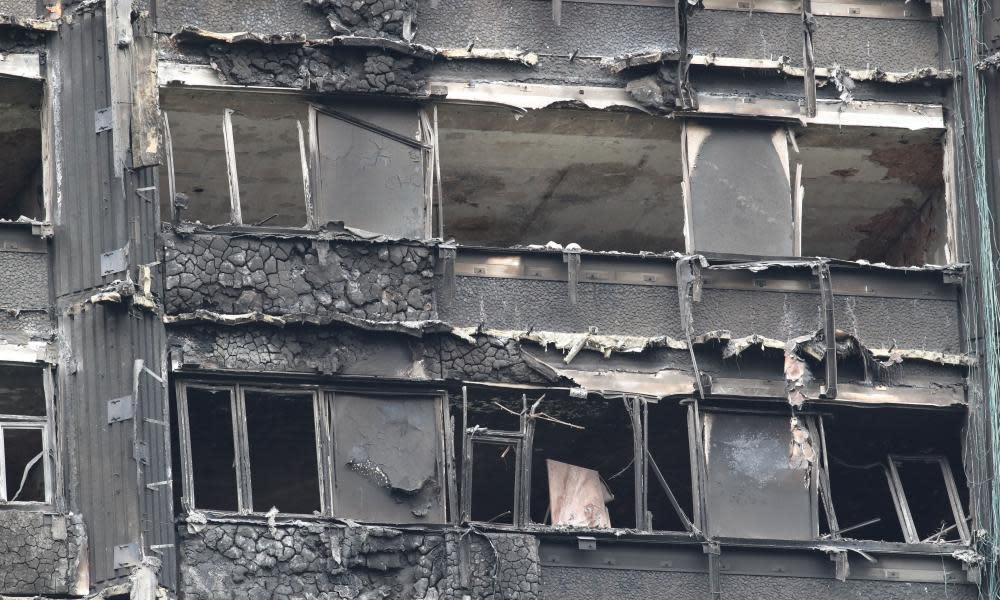Legal aid cuts 'may have stopped Grenfell tenants pursuing safety concerns'

Cuts to legal aid may have stopped tenants in Grenfell Tower from pursuing safety concerns that could have prevented the fire, the president of the Law Society, Robert Bourns, has suggested.
His comments, made at the launch of a report on access to justice, will revive the political debate over the provision of legal advice and representation to those who are vulnerable and least well off.
“There have been reports that tenants of Grenfell Tower were unable to access legal aid to challenge safety concerns because of the cuts,” Bourns said. “If that is the case then we may have a very stark example of what limiting legal aid can mean.”
Certain categories of housing claims are no longer eligible for legal aid under cuts introduced by the Legal Aid, Sentencing and Punishment of Offenders Act (Laspo). Tenants are faced with difficult choices, Bourns warned: “to pay for their own legal advice, represent themselves, or be excluded from the justice system altogether”.
The Ministry of Justice has began a review of the impact of Laspo which came into effect four years ago. The new justice secretary, David Liddington, has disputed whether anyone raising serious concerns over safety would have been denied legal aid.
The Law Society report, Access Denied? Laspo Four Years On, says that hundreds of thousands of people who were previously entitled to legal aid have been deprived of help and advice by the £450m cuts.
Pressure on public services have increased, according to the study, due to growing numbers of people representing themselves in court and the removal of early advice for those pursuing complaints.
Nearly a third of the legal aid areas in England and Wales have one or no local legal aid housing advice providers, the Law Society says. “Advice deserts” have appeared: neither Shropshire nor Suffolk have any housing legal aid advice provider.
The volume of legally-aided housing cases halved between 2012 and 2013. The number of such cases is still falling.
Among those most severely affected, the Law Society says, are migrant children who no longer have access to legal aid for non-asylum immigration issues. The Children’s Society estimates that as many as 3,600 currently in local authority care,and 9,000 to 12,000 living in private fostering are affected.
Bourns added: “Removing lawyers from the process is a false economy. The cuts in legal aid for family law have put people off seeking advice and support from solicitors who can explain where they stand and what their rights are.”
“Behind the data are hundreds of thousands of people who can no longer obtain legal aid for matters such as family break up, a range of housing problems, challenges to welfare benefits assessments, employment disputes, or immigration difficulties. A properly funded legal aid system is an essential public service that ensures equal access to justice for all.”
In an interview with Radio 4’s Law in Action this week, Liddington defended the provision of legal aid. He said: “Under the legal aid arrangements, if you are a tenant and have concerns about safety issues, you can get legal aid to take action against your landlord.
“The Legal Aid Agency advice so far is that they have no record of the Grenfell Action Group [or tenants] having applied for legal aid.”
A Legal Aid Agency spokesperson said: “Maintaining access to justice remains absolutely vital and continues to be at the heart of our reforms.
“Our legal aid reforms are reducing costs to taxpayers whilst still providing legal help to those who need it most.”

 Yahoo News
Yahoo News 
